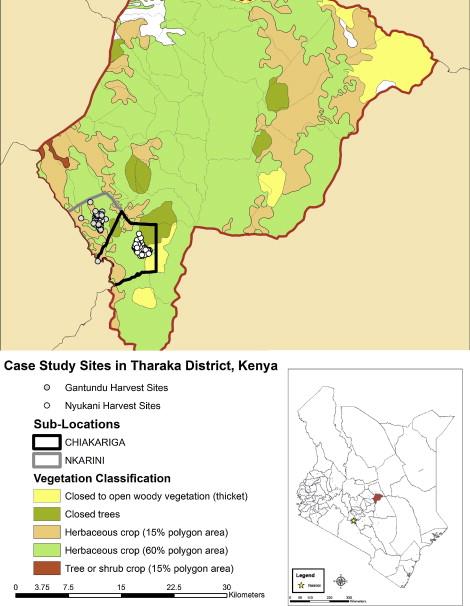Institutional factors affecting wild edible plant (WEP) harvest and consumption in semi-arid Kenya |
| |
| Affiliation: | 1. Department of Natural Resource Sciences, Faculty of Agricultural and Environmental Sciences, McGill University, 21,111 Lakeshore, Ste-Anne-de-Bellevue, QC H9X 3V9, Canada;2. Centre for Indigenous Peoples’ Nutrition and Environment, McGill University, 21,111 Lakeshore, Ste. Anne de Bellevue, Montréal, QC H9X 3V9, Canada;3. School of Dietetics and Human Nutrition, McGill University, 21,111 Lakeshore, Ste. Anne de Bellevue, Montréal, QC H9X 3V9, Canada;4. Center for Society, Technology and Development, McGill University, 845 Sherbrooke St W, Montreal, QC H3A 0G4, Canada;5. Department of Anthropology, Faculty of Arts, McGill University, 845 Sherbrooke St W, Montreal, QC H3A 0G4, Canada;1. Department of Natural Resource Sciences, Faculty of Agricultural and Environmental Sciences, McGill University, 21,111 Lakeshore, Ste-Anne-de-Bellevue, QC H9X 3V9, Canada;2. Centre for Indigenous Peoples’ Nutrition and Environment, McGill University, 21,111 Lakeshore, Ste. Anne de Bellevue, Montréal, QC H9X 3V9, Canada;3. School of Dietetics and Human Nutrition, McGill University, 21,111 Lakeshore, Ste. Anne de Bellevue, Montréal, QC H9X 3V9, Canada;4. Center for Society, Technology and Development, McGill University, 845 Sherbrooke St W, Montreal, QC H3A 0G4, Canada;5. Department of Anthropology, Faculty of Arts, McGill University, 845 Sherbrooke St W, Montreal, QC H3A 0G4, Canada |
| |
| Abstract: | 
Pervasive food insecurity and poverty in much of the world drives vulnerable populations to harvest natural resources as a means of generating income and meeting other household needs. Wild edible plants (WEPs) are a particularly common and effective coping strategy used to increase socio-ecological resilience in Sub-Saharan Africa where agricultural systems are often sensitive to environmental perturbations and instability. WEPs are collected across the landscape, from agricultural areas to government-managed hilltops with varying degrees of success and legality. This multiple case study research, conducted in Eastern Province, Kenya, investigates the formal forest regulations and land tenure rights, as well as local enforcement and understanding of those rules, in order to understand their impact on the ability of vulnerable populations to use WEPs as a coping strategy. The results suggest that widespread confusion, trust issues and a strong focus on the commercialization of wild foods are limiting the possible contribution of WEPs to food security and increased socio-ecological resilience. We identify a number of policy changes and extension programs that could better support local communities relying on WEPs for subsistence purposes to improve their adaptive capacity. |
| |
| Keywords: | East Africa Tharaka Land tenure Community forest management (CFM) Non-timber forest product (NTFP) commercialization Sustainable development |
| 本文献已被 ScienceDirect 等数据库收录! |
|

